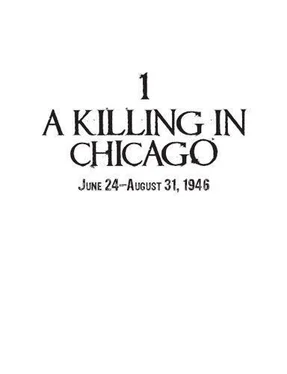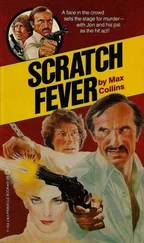Max Collins - Neon Mirage
Здесь есть возможность читать онлайн «Max Collins - Neon Mirage» весь текст электронной книги совершенно бесплатно (целиком полную версию без сокращений). В некоторых случаях можно слушать аудио, скачать через торрент в формате fb2 и присутствует краткое содержание. Жанр: Криминальный детектив, на английском языке. Описание произведения, (предисловие) а так же отзывы посетителей доступны на портале библиотеки ЛибКат.
- Название:Neon Mirage
- Автор:
- Жанр:
- Год:неизвестен
- ISBN:нет данных
- Рейтинг книги:4 / 5. Голосов: 1
-
Избранное:Добавить в избранное
- Отзывы:
-
Ваша оценка:
- 80
- 1
- 2
- 3
- 4
- 5
Neon Mirage: краткое содержание, описание и аннотация
Предлагаем к чтению аннотацию, описание, краткое содержание или предисловие (зависит от того, что написал сам автор книги «Neon Mirage»). Если вы не нашли необходимую информацию о книге — напишите в комментариях, мы постараемся отыскать её.
Neon Mirage — читать онлайн бесплатно полную книгу (весь текст) целиком
Ниже представлен текст книги, разбитый по страницам. Система сохранения места последней прочитанной страницы, позволяет с удобством читать онлайн бесплатно книгу «Neon Mirage», без необходимости каждый раз заново искать на чём Вы остановились. Поставьте закладку, и сможете в любой момент перейти на страницу, на которой закончили чтение.
Интервал:
Закладка:
Maybe ten minutes later, a patient started up the stairs onto the third level; he was followed by another.
I stepped out onto the fire escape just as they had gotten onto the landing and said, “Nobody on this level, boys,” and realized I was looking at two sallow individuals, one of whom had dark brown curly hair and a widow’s peak and a wedge-shaped face, the other of whom was balding and round-faced and wore glasses, both of whom were wearing green psyche-ward p.j.s, but neither of whom were mentally sick, though I wouldn’t have minded giving either one of them a lobotomy with my nine millimeter, which I was grabbing out from under my shoulder.
“Hold it right there,” I said, pointing the gun at them.
They froze. The widow’s-peaked guy had a big nose and bushy brown eyebrows and thick lips and bad teeth and a couple of facial moles; the guy with glasses hadn’t exactly stepped out of an Arrow shirt ad, either, though he had more regular features that added up to a baby face, albeit a pretty ugly baby. They both had the blankly evil expression of the business end of an automatic.
“Put your fuckin’ hands in the air,” I added, and they did.
I knew them. I don’t just mean that they matched up with the descriptions given by Two-Gun Pete’s trio of colored witnesses, and the orderly’s description of the “reporters”: no. I knew them from the West Side. The widow’s-peaked guy was Davey Finkel. The guy with glasses was Joseph “Blinkey” Leonard. West Side boys-like me. Well, not quite like me, I hope.
“Okay, Davey,” I said to Finkel, “one step forward.”
With my left hand, I patted him down; under the loose green top, he had a.45 automatic tucked in his waistband-he was wearing slacks under the baggy pajama bottoms. I tossed the piece just behind me and it clanked on the fire escape floor.
“One step back,” I told him, and nodded to his balding friend. “Now you, Blinkey.”
I disarmed him, as well; he carried a relatively small gun, a.32 automatic, but it had a silencer attached, making it bulky. This, had I not intercepted them, would have been the murder weapon, the little darling that would’ve given Ragen a goodbye kiss. I tossed it just behind me, too, clanking.
“What’s a couple of nice Jewish bookies like you guys doing playing torpedo, anyway?”
“Why don’t you just let us lam out of here, Heller,” Finkel said, in his sandpaper voice. “You won this round, okay?”
“No hard feelings,” Blinkey said; his voice was higher pitched but just as unpleasant.
“I got hard feelings,” I said. “You boys tried to kill me last Monday.”
They shut their traps, glanced at each other, looked back at me. Finkel was scowling; Blinkey had a bland, blank expression.
“Now we’re all going to step inside,” I said, jerking my head toward the door to the Meyer House third floor. “You boys, first. Feel free to pull something and give me an excuse.”
Just behind them, coming up the fire escape steps, came a painfully thin patient, about thirty, with a gray pallor and dazed expression and green psyche-ward p.j.s. I knew just looking at him he was a veteran; he had combat in his face.
“Can you see the lake from here?” the man said, very slowly.
“Please,” I started, “get off…”
Finkel grabbed the skinny figure and goddamn hurled him at me, knocking me back against the fire-escape rail, hard; and quickly headed back down the iron stairway, Leonard already having a head start on him.
I brushed past the confused psyche patient and followed them down, the fire escape stairs rattling like a passing El. I had a gun and they didn’t, but they stayed a landing ahead of me and on each landing were more psyche patients, and when they reached the bottom, there were more psyche patients still, a sea of green nutcases they waded into, poor goddamn innocents that were in the way of me getting a shot off at these guilty sons of bitches. They didn’t head for Lake Park Avenue, possibly because a cop was patrolling it, but to the right, around toward the Meyer House parking lot and loading area.
Their car was probably in this small lot, but it wasn’t going to do them any good at the moment, because a food delivery truck was slowly maneuvering-and blocking-the narrow alley between the parking lot, the Meyer House and another hospital building. And that was the only way out.
So they were on foot, running down an aisle between parked cars, then squeezing past that delivery truck through the alley, two desperate men in green pajamas.
I followed, gun in hand, running through the parking lot, edging past the truck, following them out onto 29th; they were moving fast, but tearing at their outer covering, shedding their green tops, beneath which were white sportshirts. They crossed to Ellis Avenue, a street of two-and three-story buildings whose once proud architecture had long since decayed, cutting across a lot made vacant by an urban renewal project.
Finkel and Leonard were heavier men than me, but younger, and, so far anyway, faster. I could take a shot at them, but they were unarmed; wasn’t sure I could risk it. I was breathing hard, stumbling on the rocks and rubble of the vacant lot, watching up ahead as they climbed a fence that was half-fallen down already. When I climbed it, I found myself in an alley. Soon I was trailing them through a nightmare landscape, the garbage-strewn alley running past the ass-ends of crumbling tenements whose tiers of back porch balconies sagged, their wooden slats like rotting teeth about to fall out. But it was strangely deserted-not a single colored face looked out from a window; no children jumped rope or sang songs. Yet in the distance I could hear music. A marching band was accompanying us as we ran…
And, God bless John Philip Sousa, I was gaining on them; they were glancing back, seeing that I was, some panic in their faces, and I grinned and poured it on. Then, at alley’s end, they rounded the corner, on what must have been 32nd, and soon I realized why it was so deserted, understood the band music, remembered: Bud Billikens Day.
Thirty-second Street itself was thronged with colored kids in Boy Scout uniforms being lined up for marching purposes by similarly garbed dark adults; and some kind of high school marching band, in gaudy uniform, was already in rows, practicing a tune. Most of this activity was in the street itself, but there was overflow and parents and such on the sidewalks, including the two white men in white sportshirts and green pajama bottoms who went running through that crowd, knocking people aside, women and children included, and people were immediately pissed. Into that hostile arena I ran, having tucked my nine millimeter away as soon as I saw this mass of humanity, doing my best not to knock into anybody, slowing down accordingly.
And then I was at South Park Avenue, where the parade was in full swing, sidewalks packed; this boulevard, with its four lanes divided by a parkway, was thronged with colored people, in their summer finery, men in straw hats, women in bonnets, kids getting their Sunday duds stained from free ice cream and candy and pop, families filling the sidewalks, lining the parkway, as marching bands and floats streamed by.
Through this pushed my two psyche ward escapees, jostling an otherwise utterly Negro crowd that was too stunned by this Caucasian presence to do anything; I followed after, but was falling back, slowed by the sidewalk swarm. I felt hands on me, touching, slapping, but nobody outright grabbed me, or hit me, or had yet, at least. I couldn’t even make out any cries of outrage, in the general confusion of band music and the crowd noise.
I’d lost sight of them, now. Hopelessness rising in me, I got to the front of the packed sidewalk and looked for white faces in a black world. It was a Klansman’s worst nightmare come true.
Читать дальшеИнтервал:
Закладка:
Похожие книги на «Neon Mirage»
Представляем Вашему вниманию похожие книги на «Neon Mirage» списком для выбора. Мы отобрали схожую по названию и смыслу литературу в надежде предоставить читателям больше вариантов отыскать новые, интересные, ещё непрочитанные произведения.
Обсуждение, отзывы о книге «Neon Mirage» и просто собственные мнения читателей. Оставьте ваши комментарии, напишите, что Вы думаете о произведении, его смысле или главных героях. Укажите что конкретно понравилось, а что нет, и почему Вы так считаете.












